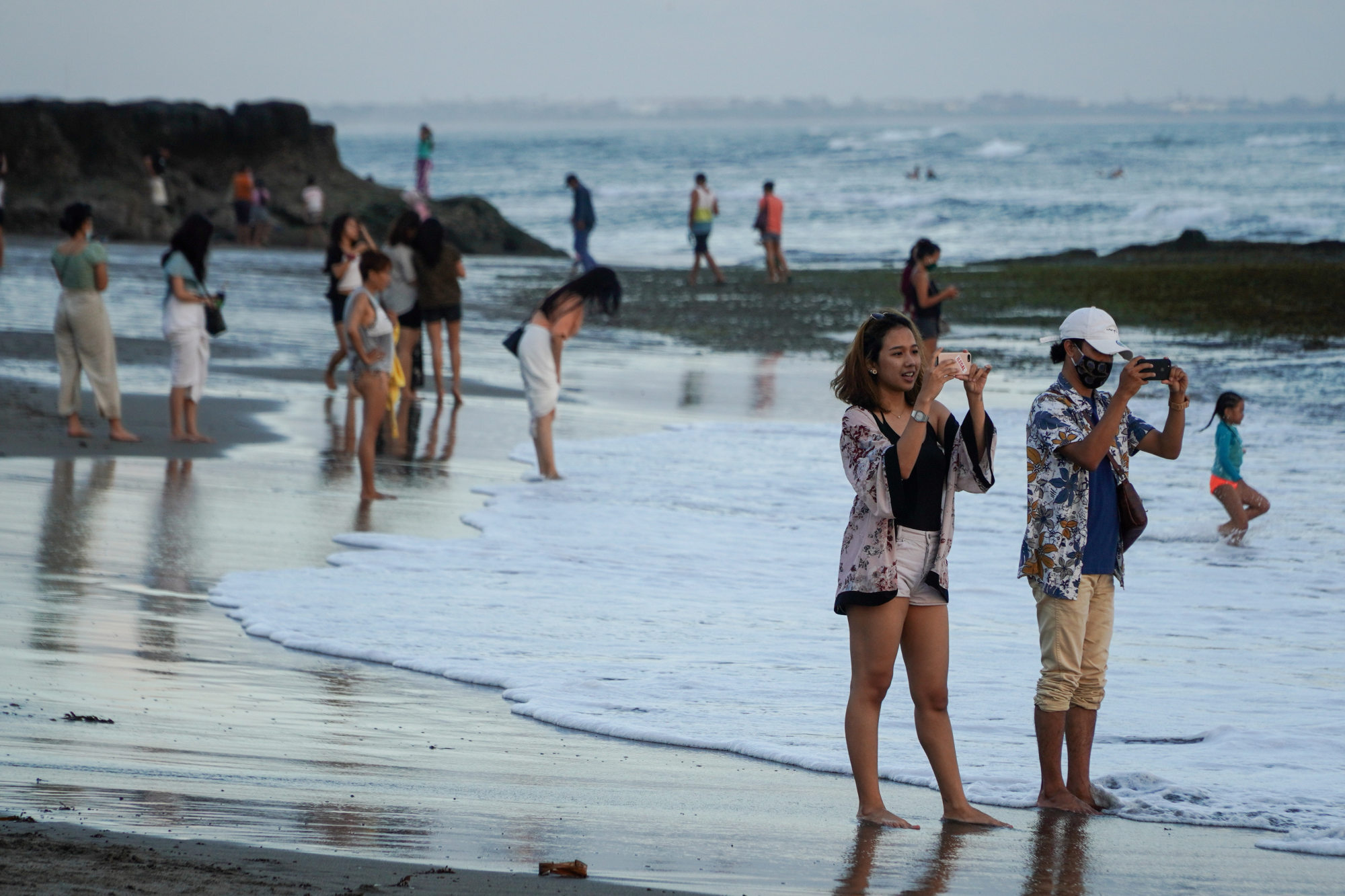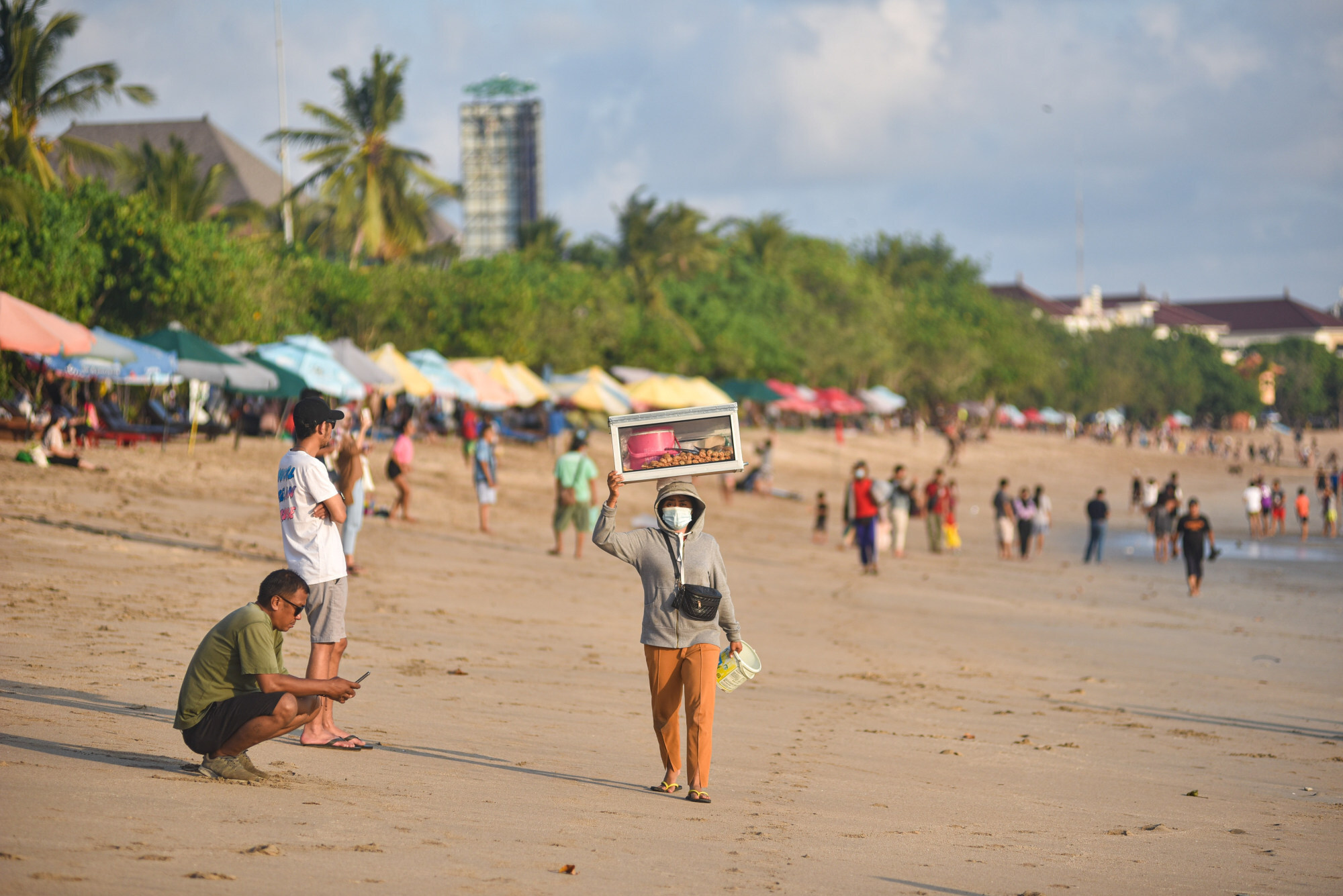
Bali and Phuket’s race to reopen to tourists – will it be a case of tortoise beats hare?
- The Thai island’s ‘sandbox’ reopening after its pandemic shutdown has hit some speed bumps, but it still expects to welcome over 120,000 visitors by October
- Bali, where the tourist industry is reeling and families are going hungry, can only look on with envy as Covid-19 cases rise – and keep planning for a reopening
Asia’s two most popular resort islands, Phuket in Thailand and Indonesia’s Bali, have been in a race to see which would reopen to international tourists first.
“This is the perfect place to just relax and clean our minds, our heads, after a long time,” Sigal Baram, from Israel, one of 5,174 tourists to arrive in Phuket in the first two weeks of the sandbox scheme, told the Bangkok Post. The Thailand Tourism Authority predicts 124,000 foreign tourists will have followed in her footsteps by September.

Over the past few weeks, Indonesia has seen day after day of record-breaking new case numbers that are now nudging 57,000, with up to 1,000 lives lost daily. Bali has been recording just under 700 new cases per day (based on a seven-day moving average) – nearly 20 times more than figures from the first week of June.

“It is impossible to open again with this Delta variant,” Luhut Binsar Panjaitan, Indonesia’s coordinating minister for maritime affairs and investment, said at an online press conference on July 1. “We’re not even thinking about it any more.”
“My job is selling roasted corn on Uluwatu Beach,” says Lalu Fazal. “But because of the regulations, I haven’t been able to sell in a week. Now my baby and son are sick. I need money for my kids’ daily needs.”

Indonesia’s finance minister, Sri Mulyani Indrawati, is scenario planning for four to six weeks of emergency measures, but Dendi Ramdani, vice-president of industry and regional research at Mandiri Bank, says: “Based on the rise in Covid-19 cases in January, it will take three months to lower to an acceptable level of 5,000 to 6,000 new cases per day.”
By Dendi’s estimate, Jakarta won’t entertain the idea of reopening until the first week of October, and experts who advise the government are not likely to give their blessings for a reopening until a number of key health and safety metrics are achieved.
The first is the percentage of tests that come back positive. According to the World Health Organization, the proportion of positive Covid-19 tests should remain below 5 per cent for at least two weeks before a destination reopens. In Indonesia, that figure is currently above 30 per cent. Dr Dicky Budiman, an epidemiologist who has helped formulate Indonesia’s pandemic management strategy for 20 years, believes that the positivity rate will have fallen to 10 per cent by October.

Hospital occupancy is another metric that needs to be measured. Data from the country’s Ministry of Health shows the average occupancy rate at Bali’s three largest hospitals is 82 per cent – and rising. Udayana University Professor Gusti Ngurah Mahardika, Bali’s most senior virologist (who is also developing a vaccine), says the rate has to be “below 50 per cent” before Bali can reopen.

That prediction is sure to make corn seller Lalu Fazal lose even more sleep – and may convince thousands of tourists, who normally visit Bali for their end-of-year holidays, to look to Thailand. However, preliminary reports from Phuket suggest the real race – the one to resuscitate the island’s decimated tourism industries – is still to be won.
After a passenger tested positive on arrival in Phuket on July 6, 13 people on the same flight from the United Arab Emirates were sent into hotel quarantine at a cost of just under US$1,600 per head – despite them all testing negative. Twelve members of that group are now demanding to be sent home with refunds for their hotel bookings and flights.

While Phuket opens up to the world, other parts of Thailand are being hammered by its worst outbreak since the pandemic began. On July 16, the country reported a daily record of 9,692 coronavirus infections, and at least 58 Thai nationals who arrived in Phuket via the sandbox scheme have tested positive for the virus. Three-hundred and thirty-three sandbox visitors identified as close contacts have been forced into costly quarantine.
It seems unlikely authorities will allow foreign tourists who’ve spent 14 days in Phuket to travel to Bangkok, which is now under partial lockdown and a 9pm curfew. Kusak Kukiattikoon, chief of the Phuket Provincial Public Health Office, has blamed a cluster of 10 new cases on Thai people travelling overland from other parts of the country.
To complicate matters, it was reported on July 11 that two Myanmese children, too young to have been vaccinated, had tested positive for the Delta variant after arriving in Phuket. In response, the government ordered all schools on the island to close for 14 days and all bus services to Phuket have been suspended.

These are the tough questions the authorities in Bali won’t have to worry about for the time being, as the island hunkers down and inoculates. The race to reopen, given ever-evolving complications, is starting to resemble that between the tortoise and the hare.

